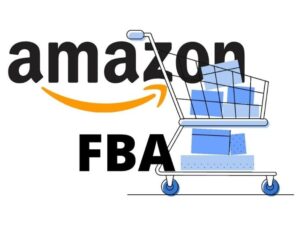Comparing Walmart Automation Stores with Amazon FBA Services

The e-commerce landscape is expanding rapidly, with both Walmart and Amazon providing profitable platforms for online sellers. As demand for streamlined, automated solutions grows, sellers now have options like Walmart automation stores and Amazon FBA services, each offering unique advantages. In this article, we’ll dive into the key differences between a Walmart done-for-you store and Amazon FBA, helping you determine which platform and service best suits your business goals.
Understanding Walmart Automation Stores and Amazon FBA
Before comparing these platforms, let’s briefly break down each service.
What Is a Walmart Done-for-You Store?
A Walmart done-for-you store refers to a full-service, managed store solution on Walmart’s online marketplace. Through Walmart automation store services, third-party providers handle everything from product listing and inventory management to order processing and customer service. The objective is to offer a nearly hands-off experience for the store owner, enabling them to earn passive income without getting involved in day-to-day operations.
What Is Amazon FBA?
Amazon’s Fulfilled by Amazon (FBA) service allows sellers to leverage Amazon’s massive fulfillment network. Sellers send their products to Amazon’s warehouses, where Amazon manages storage, packaging, shipping, and customer service. FBA enables sellers to meet Amazon’s fast-shipping standards, making their products eligible for Prime, which can increase visibility and conversions.
Both options are aimed at streamlining the e-commerce experience, but the core operational differences impact everything from profit margins to scaling potential.
Key Differences Between Walmart Automation Stores and Amazon FBA
Let’s explore the main factors that differentiate these two e-commerce approaches.
1. Marketplace Competition and Visibility
-
Walmart Done-for-You Store: Walmart’s online marketplace is growing, but it’s less saturated compared to Amazon. This offers a unique advantage for new sellers, as there’s less competition for high-demand products. Additionally, Walmart’s marketplace has an established customer base with higher income brackets on average, which can benefit sellers targeting premium products.
-
Amazon FBA: Amazon’s marketplace is significantly larger, with millions of active sellers. This level of saturation can make it difficult for new sellers to stand out, especially without strategic advertising. However, Amazon’s vast audience offers high visibility for FBA products, especially those eligible for Prime, appealing to the fast-shipping preferences of today’s consumers.
2. Fulfillment and Inventory Management
-
Walmart Automation Store: With a done-for-you Walmart store, inventory management is handled by the automation provider. This includes product sourcing, listing optimization, and inventory tracking. Some providers even manage warehousing and returns, giving sellers an end-to-end solution. While this offers convenience, sellers should be mindful of fees that may apply for these services, impacting overall profitability.
-
Amazon FBA: Amazon’s fulfillment process is streamlined, with sellers sending inventory directly to Amazon’s warehouses. Amazon then takes full responsibility for packaging, shipping, and handling returns. Although FBA provides fast, reliable fulfillment, Amazon’s storage fees can become costly, particularly during peak seasons, making it essential for sellers to manage inventory wisely.
3. Profit Margins and Fees
-
Walmart Automation Store: Profit margins for Walmart automation stores can vary based on the service provider and specific product categories. Some Walmart done-for-you providers charge a monthly management fee or take a percentage of sales, reducing net earnings. However, with lower marketplace competition, Walmart sellers may find less need to invest heavily in advertising, which can help maintain profit margins.
-
Amazon FBA: FBA fees can add up quickly, especially when including storage, fulfillment, and other miscellaneous charges. Additionally, the high level of competition on Amazon often requires sellers to invest in PPC (pay-per-click) advertising to gain visibility. This can reduce profit margins, although Prime eligibility often compensates by increasing conversion rates.
4. Scalability and Growth Potential
-
Walmart Automation Store: Walmart automation stores are highly scalable, particularly for sellers aiming to expand product lines within a relatively untapped marketplace. With a done-for-you model, sellers can focus on growing their businesses without the added pressure of operational tasks. However, the scalability can be limited by Walmart’s seller policies, which may restrict some product categories.
-
Amazon FBA: Amazon’s FBA service offers significant growth potential due to its global reach. Sellers can tap into international markets through Amazon’s various marketplaces, reaching a larger customer base. For those aiming for exponential growth, Amazon FBA provides a robust infrastructure, though high competition means success is often tied to strategic product selection and effective advertising.
5. Customer Service and Support
-
Walmart Automation Store: With a Walmart done-for-you store, customer service is typically managed by the automation provider, which saves sellers from handling individual inquiries and returns. This can be a great advantage for those looking to keep operations low-maintenance, but it’s crucial to choose a provider with a solid track record to ensure customer satisfaction.
-
Amazon FBA: Amazon’s FBA service includes customer service, managing everything from order inquiries to returns. This is beneficial for sellers, as Amazon’s customer service team is widely trusted. However, sellers are limited in their ability to directly communicate with customers, which can impact branding opportunities and personalized service.
Which Is Right for You?
Choosing between a Walmart automation store and Amazon FBA ultimately depends on your goals, budget, and risk tolerance.
-
If you’re seeking a less competitive market and prefer a hands-off experience, a Walmart done-for-you store may be an ideal choice. The lower saturation and growing customer base make Walmart a promising platform for establishing a steady revenue stream with less direct involvement.
-
If you’re aiming for maximum growth potential with access to a massive audience, Amazon FBA’s infrastructure and global reach provide significant advantages. However, be prepared for a higher level of competition and the need for strategic investments in advertising.
Final Thoughts
Both Walmart automation stores and Amazon FBA offer exciting opportunities for online sellers, each with unique benefits and challenges. Understanding the distinct characteristics of these platforms allows you to make a more informed choice about where to invest your time and resources. Whether you’re drawn to Walmart’s growing marketplace or Amazon’s expansive customer base, automation services can streamline the e-commerce process and help you build a profitable online business.







